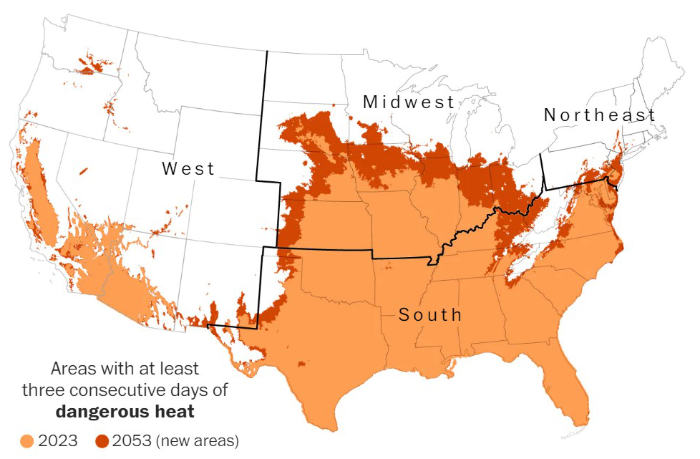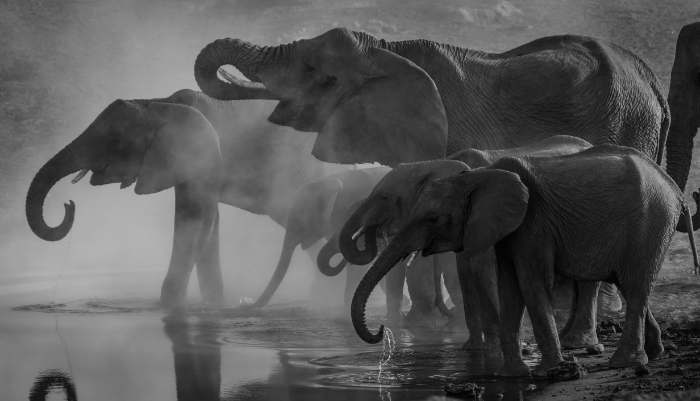In short:
- A leaked document predicts a 50% crop failure in England due to drought.
- California is due for a megaflood like the one that happened in 1862.
- There’s been a massive fish die-off in the River Oder in Poland and Germany.
Economy, energy, food security
A leaked document predicts up to 50% crop failure in England. Water companies are accused of resisting hosepipe bans instead of prioritizing agriculture. If you remember the Aug 05 roundup, people involved in drought discussions said that water companies prefer to delay imposing bans “until it’s too late.” Drought in England could carry on into the new year. If I were living in England right now, I would start preparing yesterday. Here’s our prepping checklist that is also beginner-friendly.
US egg prices could keep high for at least another six months.
The Inflation Reduction Act includes nearly $20 billion for making US farmland more eco-friendly, like storing more carbon in the soil, creating more habitats for pollinators, and strengthening farm resilience against extreme weather. US farms cover 40% of the country and emit 11% of the country’s greenhouse gases. Here’s an explainer.
As part of its effort to keep the grid stable, California hopes to keep its last nuclear plant open beyond its planned closure in 2025. Diablo Canyon supplies 8.6% of the state’s electricity and 17% zero-carbon energy. According to the proposal, unit 1 would remain open until 2029 and unit 2 until 2030, with a final expiration date of 2035.
Climate change, environment, extreme weather
According to a new study, there is a greater chance of a megaflood occurring in California due to climate change, which could turn the Sacramento and San Joaquin valleys into a 300-mile-long inland sea. A similar flood happened in 1862, and scientists now worry that California is due for another ARkStorm event. There’s a good conversation about it on the forum.
A new modeling study suggests #ClimateChange may have already doubled the likelihood of catastrophic flooding in California, and future warming will likely result in even greater increases in #flood risk. https://t.co/xzTqrZVysh pic.twitter.com/KUS96JhBhn
— Science Advances (@ScienceAdvances) August 12, 2022
According to a new analysis, nearly two-thirds of Americans will experience weeks of heat above 100F by 2053. The Central US, Florida, and Texas may experience more than 70 consecutive days over 100F, with Miami-Dade County, FL, likely experiencing 91 days of extreme heat. Click the image below for interactive maps showing the impact by Zip code (paywall)—more coverage here and here.

According to a recent study, hotter nights could contribute to a 60% increase in global mortality by the end of this century. In 28 large cities across East Asia, nighttime temperatures may increase by almost 35 degrees (F).
The climate crisis threatens pollinators, putting one-third of our food at risk. Due to their sensitivity to temperature changes, butterflies are the ‘canary in the coal mine’ of climate change. Plants bloom earlier when the temperature rises, which is out of sync with when butterflies lay eggs and metamorphose. This is a cyclical problem where the butterflies can’t get the food they need for breeding, and the plants can’t be pollinated. And for butterflies that migrate, food might not be available during their natural migration.
There has been a massive fish die-off in the River Oder between Germany and Poland. Poland’s prime minister said “huge amounts of chemical waste” were probably dumped on purpose. Germany suspected mercury, but no trace has been found. Mercury could have settled in the sediment because of past pollution before being stirred up by dredging. High temperatures and low water levels could also be choking off oxygen supplies to the river, killing the fish. Officials say it will take years for the river to recover.
And in the rest of Europe, massive wildfires are still raging in France and Spain. Italy’s Garda Lake is shrinking amidst the drought. Here is footage showing climate change’s impact on rivers in France, Italy, and Portugal.
Drought is increasing conflicts between elephants and people in Zimbabwe.
Stuttgart was designed to keep itself cool with the naturally lower air temperatures surrounding it. Parkways and corridors of trees and water funnel cooler night breezes into the city. Some of these corridors are built on old railroad tracks that have been turned into green belts or waterways to create a network of parks.
The rest
According to a new study, a nuclear war would lead to global famine and the deaths of billions of people. According to the researchers, nuclear bombs targeted at cities and industrial areas would trigger firestorms and inject massive amounts of soot into the atmosphere. The soot loadings would disrupt the climate of Earth for decades, affecting land and ocean food production systems. A nuclear war between Pakistan and India could kill more than 2 billion people, while a war between the US and Russia could kill more than 5 billion.
The CDC relaxed its Covid guidelines. Here’s a good write-up about the changes and how to navigate them.
Kim Jong Un and Putin promised to forge stronger bilateral ties between their two nations.
On privacy: Instagram and Facebook are stalking you on websites accessed through their apps. What can you do about it? A good advice from the article: “Remember: on the internet, if the service is free, you’re probably the product.” Here’s our digital security and privacy guide and a list of relevant discussions.

You are reporting the comment """ by on